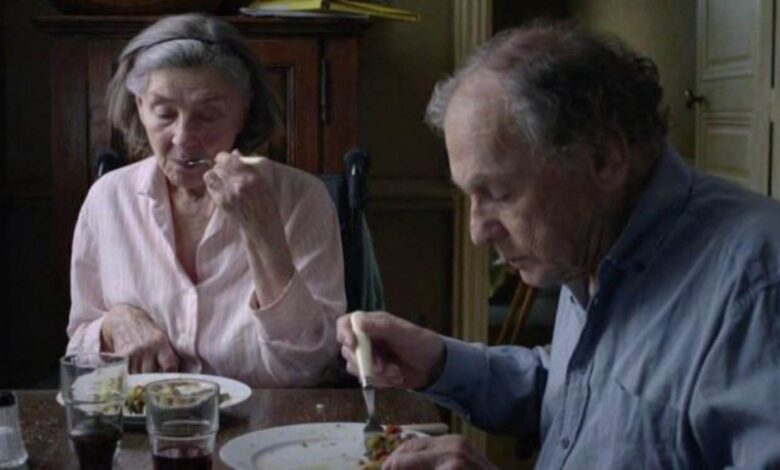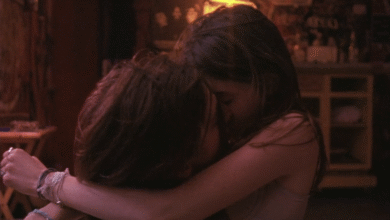Amour (2012): “Things will go on, and then one day it will all be over.”

Michael Haneke’s Amour (2012) is not just a film. It is a suffocating, intimate plunge into the dark heart of love when life strips away youth, health, and dignity. This Palme d’Or-winning masterpiece doesn’t ask for your sympathy — it demands your surrender.

The Story That Hurts
Georges and Anne, once vibrant music teachers, now withered by age, face Anne’s sudden paralysis. What unfolds is not a love story in the rosy sense, but a raw, merciless dissection of devotion. Every glance, every whispered word between them feels like a thread stretched to breaking point. As Anne deteriorates, Georges’s love turns into silent martyrdom. The home they share becomes a tomb of shared memories and unbearable pain.
The Emotion That Burns Under the Skin
Haneke doesn’t shy away. The film watches — cold, still, heartlessly honest — as bodies fail and hearts crack. There’s no orchestral swells, no comforting fade-outs. Just the naked reality of aging and slow dying. Yet in that cruelty lies a savage beauty. Watching Georges bathe, feed, and ultimately surrender to Anne’s suffering is a dark, twisted echo of the tenderness we all crave.

The Line That Haunts
“Things will go on, and then one day it will all be over.”
A simple sentence that gnaws at your soul. In Amour, love isn’t eternal — it decays, suffocates, and demands everything, even life itself.
Amour is a devastating portrait of love’s final act — not a kiss, but a quiet, suffocating goodbye. It’s a film that leaves you gasping, wondering how deep love can cut… and whether, in the end, we all bleed the same.





